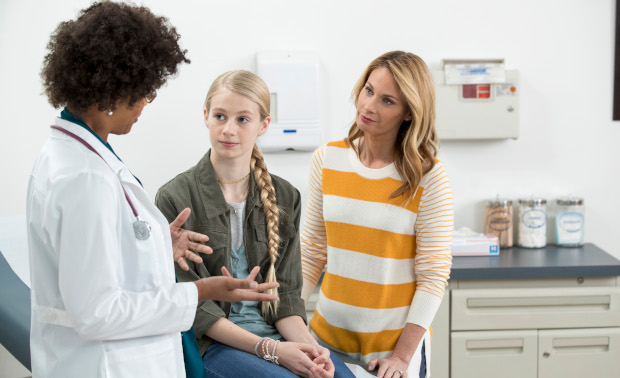Before they become eligible for COVID-19 vaccinations.
Each summer, ACS reminds parents to talk to their children’s health care providers about preventing six types of cancer via HPV vaccination. This year, our campaign is launching earlier, and with more urgency than ever, for two important reasons.

First, the COVID-19 pandemic has resulted in a decline in vaccination rates as parents canceled pediatrician visits to avoid being exposed to the virus. As a result, the CDC estimates that HPV vaccinations are down by more than 20% – or 1 million doses – compared to 2019.
Second, experts predict the COVID-19 vaccination will be available to adolescents at some point this summer. If that’s the case, children who get the COVID-19 vaccine will have a seven- to eight-week window in which they cannot receive any other vaccinations, spanning the time before, during, and after they receive the COVID-19 vaccination.
What ACS is doing
It’s clear that now is the time to get children caught up on routine immunizations they might have missed during the pandemic and before COVID-19 vaccination is available to that age group.
In response, ACS is using a combination of earned and paid media starting May 3 and continuing through late August to encourage parents to talk to their children’s doctors about HPV vaccination.
Our target audience includes:
- Parents/guardians of children age 9-12. In general, people ages 38-50.
- Parents, with a focus on moms as the family health decision makers.
- People of are unaware or lack of knowledge about the HPV vaccine and who may be hesitant or cautious.
- Parents living in communities with lower vaccination rates
Why it matters
HPV vaccination helps protect against 6 types of cancer. It helps protect boys from cancers of the throat, penis, and anus later in life and helps protect girls from cancers of the cervix, throat, vagina, vulva, and anus later in life. Vaccination can prevent more than 90% of HPV cancers when given at the recommended ages.
It works best when given between ages 9-12, though children and young adults ages 13-26 can and should receive the vaccine if they are not up to date.
Vaccination is for girls and boys, and it’s been proven safe, effective, and long-lasting.
More than 60% of parents in the U.S. have chosen to protect their children from HPV cancers. ACS’s Mission: HPV Cancer Free campaign aims to boost that number to 80% by 2026.
Action for volunteers
If you’re the parent of a child age 9-12, talk to your pediatrician about making sure your child is protected from HPV cancers.
For more about our HPV efforts, visit cancer.org/hpv. And for information about getting vaccinations during the pandemic, visit cancer.org/covidandhpvvaccine.
*Shared from MySocietySource.
No comments:
Post a Comment